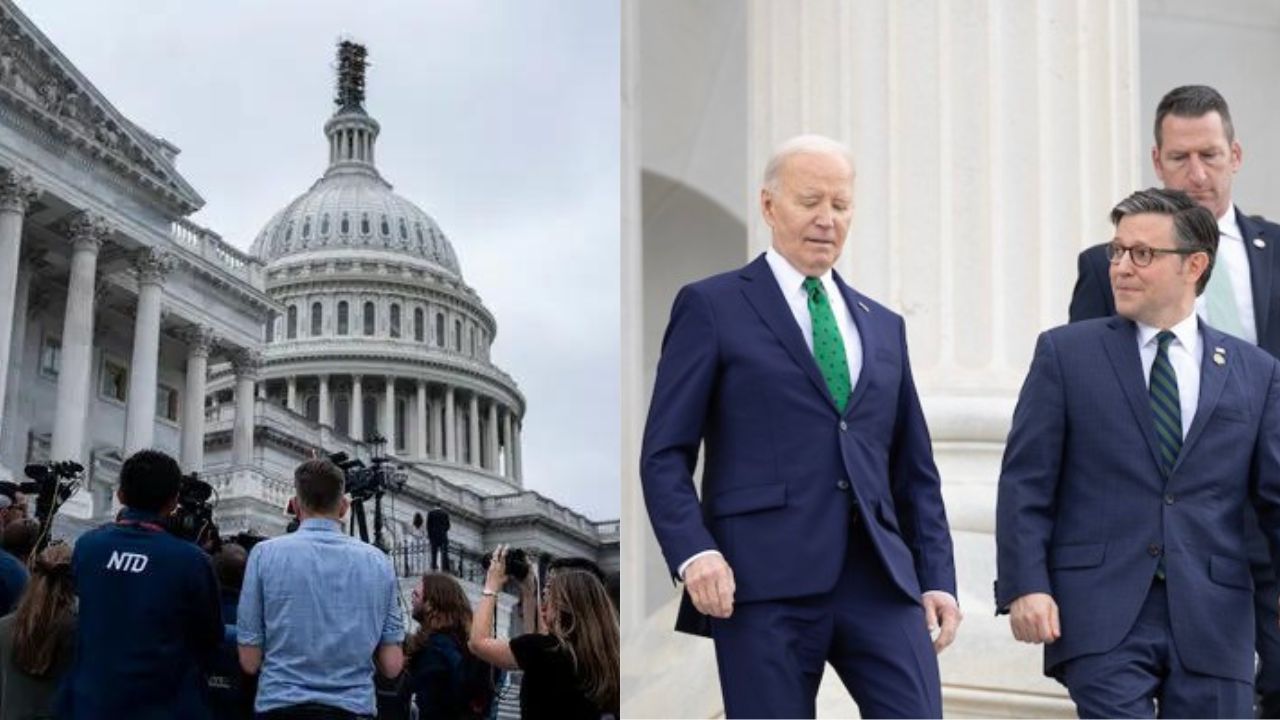Early Saturday morning, the Senate successfully passed a government funding package, thus averting a partial shutdown and resolving a prolonged battle that has loomed over Capitol Hill for months.
The next step for the legislation is to be sent to President Joe Biden for his signature, which is expected to take place on Saturday.
This vote marks a significant milestone on Capitol Hill, as it brings an end to an annual appropriations process that has extended far beyond the typical timeframe. The effort has been characterized by partisan policy disputes and a notable change in House leadership, with conservatives ousting former Speaker Kevin McCarthy in an unprecedented vote last year.
Although the final passage occurred after the midnight deadline, the Senate’s action effectively prevented any interruption in funding or government operations. As a result, the federal government is now funded through the end of the fiscal year. The Senate’s vote follows a tumultuous day on Capitol Hill, underscoring the narrow majorities in both chambers and the heightened tensions among lawmakers.
Shortly after the House approved the legislation under consideration in the Senate, Republican Rep. Marjorie Taylor Greene of Georgia filed a motion to remove Speaker Johnson from his position. While this resolution does not require immediate action, it represents a formal and forceful challenge to the speaker’s leadership since he assumed the role late last year. The final House vote was 286-134, with 112 Republicans and 22 Democrats voting against.

Despite the House vote earlier on Friday, voting in the Senate was delayed for hours due to negotiations over an agreement to expedite passage in the chamber. Republicans had insisted on votes on controversial amendments that placed some vulnerable Senate Democrats in difficult political positions.
The funding bill addresses various critical government operations, including the departments of Defense, Homeland Security, Labor, Health and Human Services, Education, State, and the legislative branch.
Lawmakers unveiled the $1.2 trillion government funding package just before 3 a.m. ET on Thursday, and the text spans over 1,000 pages.
Schumer emphasized on Thursday that the legislative package arrived “in the nick of time,” with less than 48 hours remaining before the deadline for a partial government shutdown. He stressed the urgency, stating that Congress must now move swiftly to pass the package before government funding expires on Friday. Schumer highlighted the need for bipartisan cooperation, recognizing that any single senator could impede the bill’s progress and trigger a shutdown.
After repeatedly averting shutdowns with last-minute stopgap measures, Congress finally passed a package of six bills in early March to fund various government agencies for the remainder of the fiscal year.
Johnson, who assumed the speaker’s role following McCarthy’s removal, faces challenges due to his narrow majority and opposition from his party’s right wing regarding his approach to the government funding issue. As the House enters a two-week recess on Friday, Greene’s motion to remove Johnson will loom over the GOP conference, influencing their decisions in the ongoing 118th Congress.

